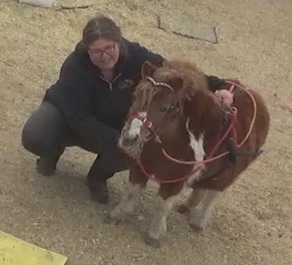A new horse is super exciting.
No matter the circumstances, it’s likely that you’re counting down the days until they arrive home, and can’t wait to get started on whatever activity you have planned for them.
But there are a few things you can do to help your horse settle in, and make the transition pleasant for them.
It’s A Big Deal For Your Horse
Horses form close bonds with their herdmates, and feel safe when they are around. They draw comfort from the familiar surroundings and routines that they’ve become accustomed to.
We, as humans, underestimate the impact that a move has on them.
Sometimes people complain when they get a new horse. They say that the horse was misrepresented or even drugged because it isn’t behaving the same as it did at the sellers when they bought it. And there are cases where that happens, but sometimes the horse is just adjusting to a huge shift in his life, one that he was unprepared for and doesn’t understand.
He’s been abruptly taken away from the horses and humans and home he’s familiar with. Give him some time.
Ease the Transition
Anything you can do to make him feel at home, if that means getting some of his familiar hay from his owner and changing gradually, finding out his favourite treat brand, or asking about his favourite scratchy spots, will help.
Ask how he was managed in his previous home. A horse who is used to large pasture turnout, for example, is probably going to struggle to adapt to life in a stall. It doesn’t mean you can’t change him to your management system, but having that information will help you manage your own expectations of his adjustment period.
Be Patient
Let your new horse settle in. Let him get familiar with the routine and have low expectation interactions with him. Take him for walks to hand graze, spend a few minutes grooming or feeding him a treat several times a day. Let him know that this is a good place to be. My preference is to let them settle in for quite a while before asking anything more significant of them.
Introduce him to new friends gradually, across a fence for a while first (once safe if any quarantine requirements) and then in a large, safe area so they can get to know each other without anyone feeling threatened or cornered. Horses who live in a herd with other horses are better able to learn and more physically fit as a result, so safely introducing him to others is a great way to start letting him settle in.
Getting To Know You
Even a horse who is very experienced in the activity you plan to do with them, driving for example, will have a learning curve when working with a new human.
Your cues and timing will be different, your equipment won’t be exactly what he’s used to, and your routine will be new as well.
Instead of expecting him to perform immediately at the level he was with his previous owner, take a few steps back. The review will be good for both of you and you’ll be able to really start setting up a line of communication and a connection that you both understand.
There’s No Hurry
Even if you read this and think, “But show season is coming, I AM in a hurry!” remember that in the scheme of your partnership with this horse, you have plenty of time. Just give him the time he needs at the beginning and before you know it the two of you will be working together in harmony.
If we recognise and respect the monumental change that a new home brings to our horse’s lives, we’re much more likely to find the success and partnership we are hoping for with them.
